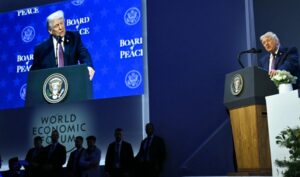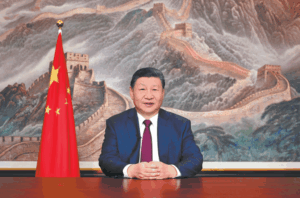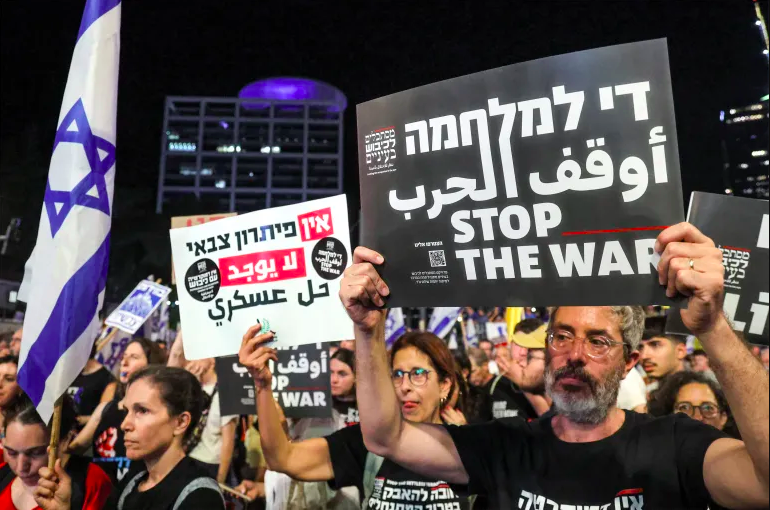
Published 06/17/2024 19:39 | Edited 06/17/2024 20:02
Groups of Israeli protesters took to the streets and blocked major highways and intersections across the country, lighting bonfires and erecting barricades in an act of discontent against the government. According to Israeli media, popular dissatisfaction intensified due to the government’s handling of the war in Gaza.
The scenario in Israel is one of deep dissatisfaction and popular mobilization against the government. With protests intensifying and demands for urgent political change, the country faces a critical moment in its recent history.
Protesters blocked Route 1 toward Jerusalem and Route 4 near Ra’anana in central Israel. They demand that the government close an agreement to exchange captives and call new elections, according to information from the The Times of Israel. The road blockade is part of a series of coordinated actions to put pressure on the government.
Skirmishes and arrests in Tel Aviv
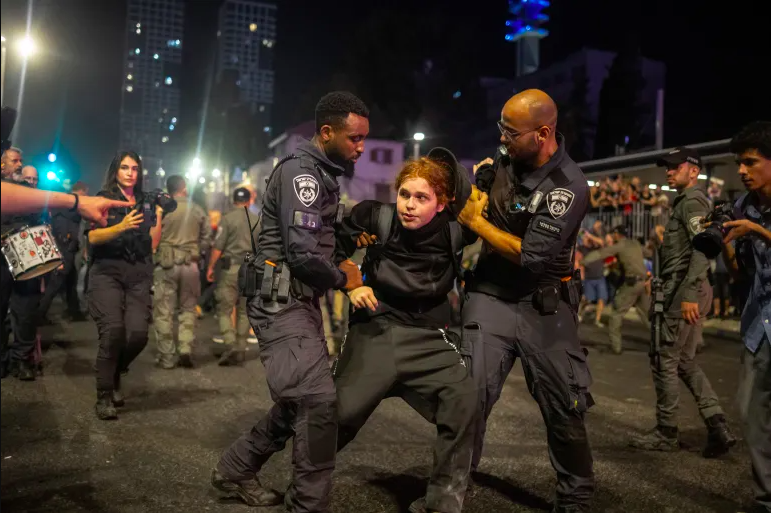
The move follows a demonstration in Tel Aviv on Saturday night, where police dispersed protests, resulting in clashes and the arrest of 12 people. Among those detained was Itay Ron, a photographer for the newspaper Haaretz, who was arrested while covering the protests. Videos of the incident show Ron being pushed onto a bus by an undercover police officer, despite protests from onlookers that he was a journalist.
Internal tension is being fueled by prominent figures such as former Prime Minister Ehud Barak, who called on Israelis to mobilize against Benjamin Netanyahu’s government. Barak calls for a million Israelis to protest around the Knesset, the Israeli parliament, because he believes “that this government is leading Israel to the abyss.”
Discontent with the Army
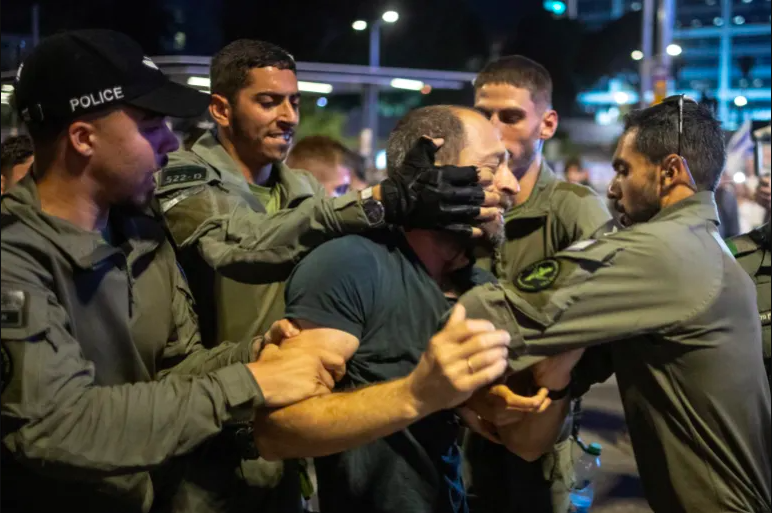
Anti-government activists are preparing for a week of intense protests. The demonstrations began with the blocking of highways and will continue with a large gathering in front of the Knesset, culminating in a march to Prime Minister Netanyahu’s residence. Eran Schwartz, leader of the protest group Free in Our Land, emphasizes the need for elections before the October 7th anniversary to begin a process of national healing.
The issue of military draft exemptions for the 15% of ultra-Orthodox Haredi Jews is another source of tension. Analysts such as Elijah Magnier point out that this exemption creates an unequal burden on Israeli society, exacerbating political and social tensions. Although they are the strongest supporters of the Palestinian genocide, Orthodox Jews protest legislative attempts to force them to serve.
Dissatisfaction with military service is also growing, with 42% of enlisted personnel, including professionals and reservists, expressing a desire not to re-enlist. Magnier highlighted that around 10,000 soldiers and officers sought medical and psychological help due to the stress of war. The army’s actions and confrontation with determined groups are undermining the morale of the troops.
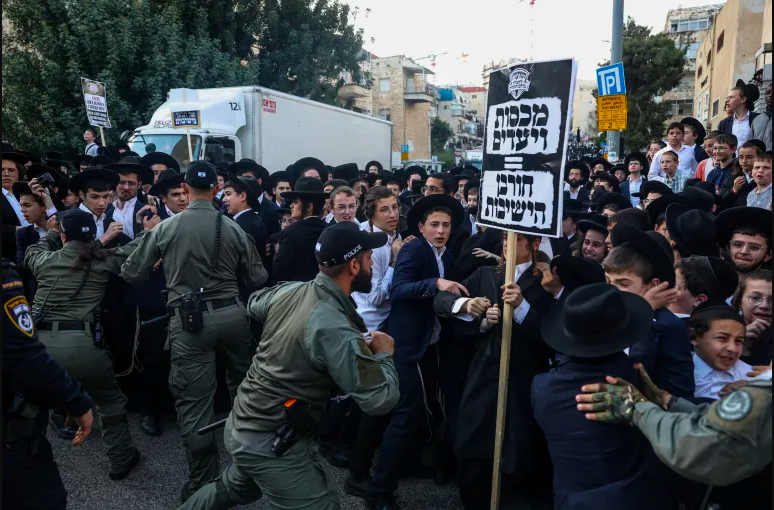
Protest by Orthodox Jews against attempts to make military service obligatory for them
Pressure on the Israeli government comes not only from citizens, but also from the international community. Political analysts, such as Akiva Eldar, highlight that Israel is becoming increasingly isolated on the world stage due to its stance towards Gaza. Eldar mentioned that he has never felt so uncomfortable presenting his Israeli passport when traveling internationally, reflecting growing global disapproval. “Israelis are no longer welcome everywhere.”
Source: vermelho.org.br
